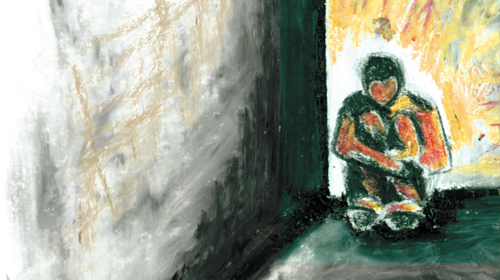
Next week the United States Supreme Court will hear arguments in two historic cases. Incredibly, the cases — from Alabama, Miller v. Alabama, and Arkansas, Jackson v. Hobbs — concern the practice, unique to the United States, of imprisoning teenagers for the rest of their natural lives for crimes committed while they were still developing into adulthood. The U.S. stands utterly alone on this one — no other country in the world locks up its children for crimes committed before they could legally drive, join the military, vote or sometimes even get married.
Miller and Jackson are next in a line of cases decided recently by the Court addressing appropriate constitutional protections and punishment of youth. In Roper v. Simmons in 2005, the Supreme Court found the death sentence for any minor convicted of murder unconstitutional; in Graham v. Florida, five years later, the Court barred a life-without-parole sentence for a minor who committed a crime other than murder. The fundamental reasoning of these decisions was that undeveloped youthful judgment and moral sense make severe punishment cruel and unusual — and thus a violation of the Eighth Amendment. Last year, in J.D.B. v. North Carolina, the Court recognized that there is a heightened risk of coercion when children are subject to police interrogation without their parents or a lawyer in the room.
Our hope is that the Court continues in this vein and determines that, although the youth in Miller and Jackson were convicted of murder, their youth still gives them great capacity for change and should prevent them from being treated as worthless and hopeless throwaway kids. As a former juvenile court judge wrote in today's New York Times, the Justices should "apply the logic and the wisdom of their earlier decisions and affirm that the best time to decide whether someone should spend his entire life in prison is when he has grown to be an adult, not when he is still a child."
The ACLU is currently litigating a separate case on behalf of several people in Michigan convicted of crimes while younger than 18 and sentenced to life in prison without the possibility of parole. ACLU affiliates around the nation have also been engaged in advocacy on these issues, in partnership with allies like the Campaign for Fair Sentencing for Youth.
How is it that our government continues to punish young people as adults while they are not yet fully developed and mature enough to behave as adults and follow the law — and who are often, as are the youth in the two cases before the Supreme Court next week, reeling from horrific trauma experiences, poverty, neglect, mental illness, drug abuse and suicide attempts?
We must believe in redemption and rehabilitation. If not for our children, for whom?
Learn more about juvenile life without parole: Sign up for breaking news alerts, follow us on Twitter, and like us on Facebook.

